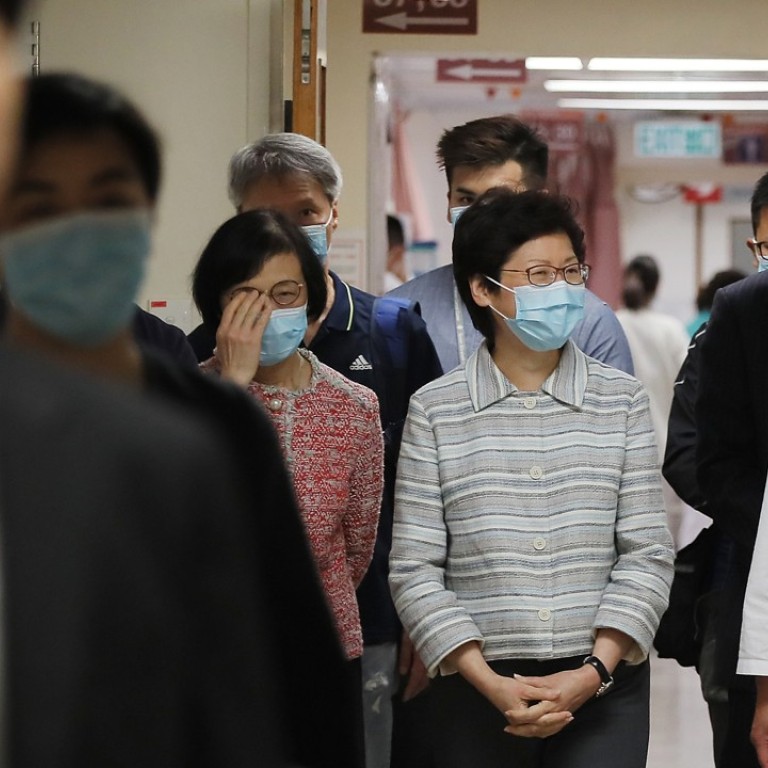
Carrie Lam issues action call in Hong Kong hospitals’ flu crisis
Authority in charge of public wards told to come up with urgent measures ‘very soon’ as doctors struggle to cope with deadly summer outbreak
The city’s leader has called on the Hospital Authority to come up with urgent measures “very soon” to ease pressure on public hospitals grappling with a flu crisis that has killed 157 so far.
She was told patients with conditions that were not life threatening had to wait for at least six hours to see doctors, and those being admitted to wards after initial treatment 15 hours.
Accompanied by Secretary for Food and Health Professor Sophia Chan Siu-chee, Lam heard how the unusually strong outbreak of summer flu was putting hospitals under pressure.
As of Saturday, the overall occupation rate of general medical wards at public hospitals was 111 per cent. The rate at Queen Elizabeth Hospital in Kowloon was 124 per cent, while at Pok Oi Hospital, Yuen Long, and Prince of Wales Hospital, Sha Tin, it was 122 per cent and 120 per cent respectively.
The authority said it hoped the manpower problem would be eased with the arrival of 100 newly graduated doctors later this month and up to 2,000 nurses by September. It would also hire more part-time doctors and request nurses who were on holiday to get back to work.
“I have already asked the authority to work out measures very soon to ease the manpower problem. If it is something to do with resources, the government can promise to give its full support. But if even though there is money, and there is still a problem getting enough doctors, that will be a more complicated and difficult issue,” Lam said.
If it is something to do with resources, the government can promise to give its full support
“I have asked [the authority] to think if there are any other ways, in addition to more resources or hire more people, to ease the manpower problem in a very short period of time.”
Dr Cheung Wai-lun, the authority’s acting chief executive, said the flu outbreak this year was “unusual” and many elderly people had fallen sick and been admitted to hospital. “In the past two weeks, some 1,000 patients needed to be admitted to general medical wards of public hospitals every day. Usually, such a situation would last about two or three days and we would be able to cope with it. But this year, it lasted for more than 10 days,” he said.
Cheung said some hospitals had resorted to adding more beds, or offering a subsidy to get medical staff on holiday back to work. Non-urgent surgery had also been postponed. He warned the flu season could stretch beyond October and urged the sick to be patient.
Dr Paul Chan Kay-sheung, a microbiologist at Chinese University, said there was no sign of the influenza viruses mutating. He believed the recent outbreak was partly due to the flu vaccine given in November starting to expire.
The authority said it may discuss the timing of the seasonal flu vaccination programme with the Centre for Health Protection.
Earlier it announced that this year’s round would be launched in October or November.

